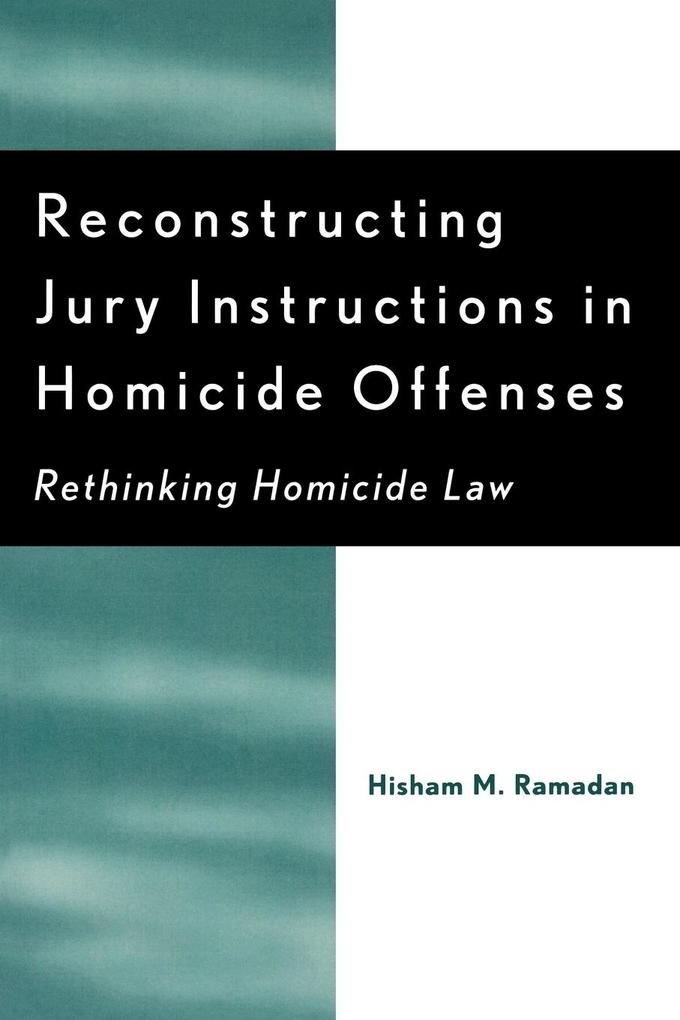This book offers critical analysis for jury instructions in the United States. Supported by court decisions, careful interpretation of the United States Constitution, and jurist's arguments, Hisham M. Ramadan thoroughly examines the mental elements in crime, the burden of proof in criminal trials, and the doctrine of reasonableness.
Inhaltsverzeichnis
Chapter 1 Foreword
Chapter 2 Preface
Chapter 3 Acknowledgments
Chapter 4 The Standard of Proof in Criminal Trials (The Challenge of Explaining "Reasonable Doubt"): Introduction; Is "Beyond a Reasonable Doubt" A Self-Explanatory Concept?; The Impact of an Undefined Standard of Proof in Criminal Trials; The Basic Concepts
Chapter 5 Reconstructing Reasonableness in Criminal Law: Introduction; The Rise and Fall of Reasonableness in Criminal Law; Policies that Underlie the Reasonableness Standard; The Failure to Achieve the Objectives of the Reasonableness Standard; Rule of Subst
Chapter 6 Recklessness: Introduction; Problems with Setting Reckless Boundaries; Outlining Recklessness Boundaries; Analysis and conclusion; Proposed Jury Instructions
Chapter 7 Intentional Homicide: Introduction; The Cognitive State of Desire: Desire to Cause Death versus Desire to Cause an Act that Ultimately Causes Death; The Cognitive State of Belief "Knowingly"; Intentional Homicide with Aggravating Circumstances: Prem
Chapter 8 Negligence: Introduction; The History of the Fault Element in Negligence: Awareness of Fault; Modern Analysis of Fault in Culpable Negligence; Redefining Culpable Negligence: Integrating Negligence within the Theory of Knowledge; Conclusion; Propose
Chapter 9 Index










